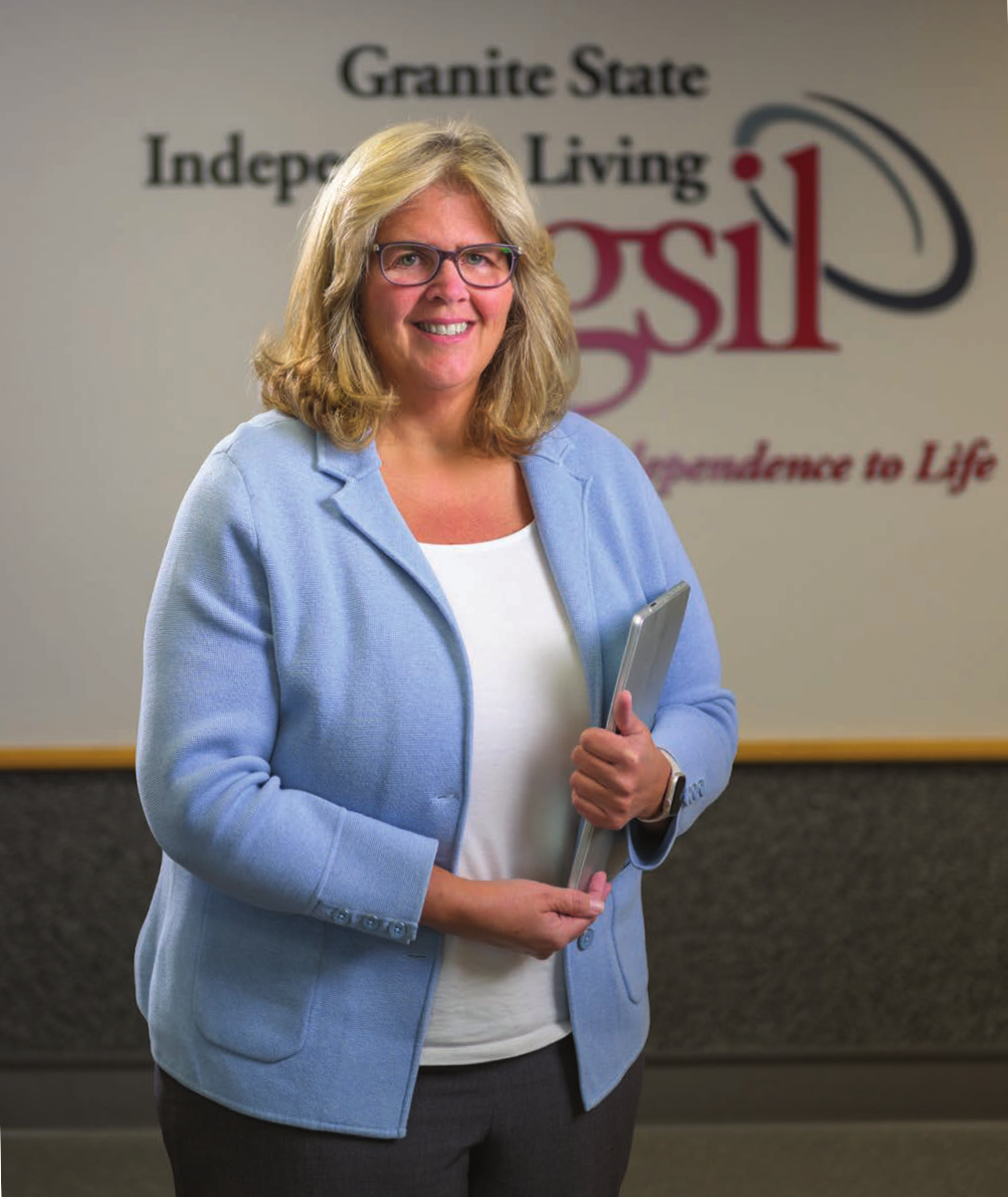Deborah Ritcey
President/CEO
Granite State Independent Living
Deb has led GSIL since 2019, working to ensure people with disabilities are able to continue living in their homes and their communities. Whether they have physical disabilities, visual impairments, are deaf or hard of hearing, anyone with an ADA-recognized disability can receive help from GSIL, including young people transitioning out of high school and into college or the workforce.
Deb has also worked with legislative leaders to target budget dollars towards essential services, and helped secure one of the largest pay increases ever for workers in the disability services field. She spent over 30 years’ experience raising a son with disabilities, Matt, which steered her to help improve the lives of people with disabilities. Deb discovered a passion for working with other families in similar situations, and she taught them to advocate for their child’s right to an education.
• What was your career journey like?
I never would have been in healthcare first and foremost, but for my son who Matt, who was born in 1988 with significant disabilities. Out of high school, I went to school for hotel and restaurant management. But I didn’t even finish college because I had Matt, and I needed to figure out how to balance that lifestyle. I was a single mom and somebody poked me to join a board of directors when I was 20, right when I had Matt.
It was a long journey. Matt had a lot of difficult procedures and things in his life that precluded me from working, because I didn’t have anybody to take care of him. By the time he was five, he already had 17 surgeries. He was just very medically complex. And then I just started doing education services advocacy for people, because I did it for my son. So that’s how I got here, and then I just continued to stay in the disability community. I worked a lot with seniors and making sure that they stay home and not going to nursing homes before their time.
I wouldn’t be here without Matt. There’s no question in my mind I never would have landed in this arena. Matt set my path, and he made me do things I never would have otherwise done.
• What’s a significant challenge that you’re facing?
Workforce. We have about 500 employees that are in the homes of Granite Staters throughout the state helping them stay in their home for as long as possible. When we don’t have a workforce, our consumers go into a nursing home.
What we do is not sexy — it’s bathing somebody who has no use of their entire body; it’s doing bowel and bladder procedures. So, the type of person that we need is even more scarce than a population of young kids who are just gonna go work at any fast-food place. When COVID hit, we immediately had a 24 percent reduction in unemployment. But it’s not just about money — what we do, people are not doing it for the money. They’re people who have been caregivers their entire life — maybe their parents have passed away and they’re looking for work. Ninety-six percent of our employees are female.
• Do you have a formal mentorship program at GSIL?
We started this accountability team where we gather predominantly non-managerial staff together.
I gave them a few books to read, and then we discussed what makes a good team and how to overcome dysfunctions in our organization or at home. Another book we all read was about how to appreciate people. So, it was really developing non-managerial staff to understand their value in the company and that they are the fundamental roots of how we grow and be better.
There was a lot of collaboration, and I wanted to make sure that they knew their voice is just as powerful as mine. I wanted to empower my staff to think that they could come to me and hold me accountable. It was nerve wracking at first, because you have to open up, be somewhat vulnerable, to be part of this group.
• What advice to you have for new female business leaders?
What really bothers me is that women are still trying to prove themselves — that to me is a barrier. If a woman knows who she is and what she’s comfortable with and what she’s able to accomplish, she needs to go in there with that mindset. Not the mindset of ‘I still need to prove myself.’ None of us got where we are because we’re women; we got there because of our history and our record of being successful in doing the right thing. I think if women could abolish the notion that they still have to prove themselves, I think they will go further, and I think they’ll be more well respected.